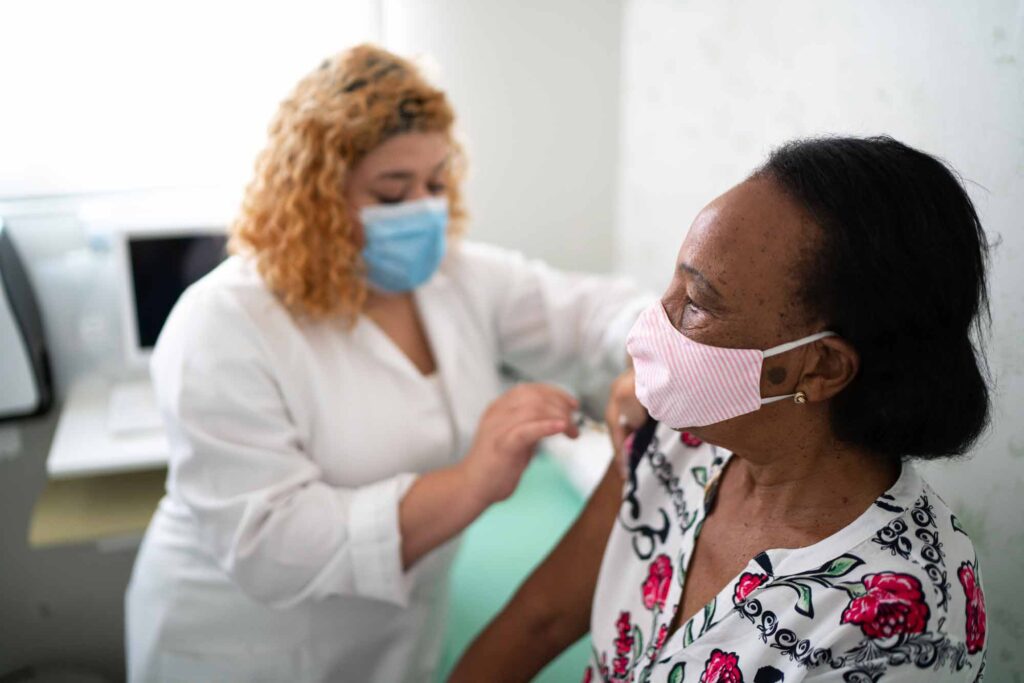In the wake of the covid pandemic, medical mistrust has amplified in the public consciousness. With many communities experiencing a history of generational injustice, implicit bias in providers, racially discordant care, disparities in healthcare access, and inadequate access to health education, we understand that current and future providers must work to promote awareness, transparency and equitable action for those we care for.
With support of the Office of Diversity Programs and the Office of Diversity, Equity and Inclusion, the Student National Medical Association is hosting a two-part panel series on medical mistrust on September 2nd and September 14th.
Panelists will include patients, patient-facing healthcare workers, and community, regional and institutional leaders. Our goal with these panels is to provide transparency and insight to community members into work being done to combat these issues, with the hope that this will contribute to trust building.
Please register here for each panel. For questions, contact Andrea Bibbs at andrea.bibbs@wustl.edu.
Recordings of both panels will be available on this page after the event date.
Panel 1: September 2, 2021 | 7 – 8:30 p.m.
Patients and patient facing healthcare workers will speak to personal experiences of medical mistreatment and other sources of mistrust.
Featured panelists:
- Atara Estes, CHW-C, President of the Community Health Workers Association of Missouri
- Robin Cole, MA, Co-Chair of the St. Louis Regional Health Commission Patient Advisory Board
- Nia Sumpter, Co-Chair of the St. Louis Regional Health Commission Patient Advisory Board
- Moderated by Kaytlin Reedy-Rogier, MSW, Pipeline to Compassionate Care Project Coordinator at St. Louis Integrated Health Network
Panel 2: September 14, 2021 | 7 – 8:30 p.m.
Community, regional and institutional leaders will speak to initiatives that are planned or currently being implemented to address sources of mistrust.
Featured panelists:
- Fredrick Echols, MD, Acting Director and Commissioner of Health for the City of St. Louis
- Deidre Griffith, MPH, Regional Director of Community Health at SSM Health
- Jacqueline Randolph, MBA, Executive Director of Ambulatory Services at Barnes-Jewish Hospital
- Moderated by Will Ross, MD, MPH, Associate Dean for Diversity, Principal Officer for Community Partnerships and Alumni Endowed Professor of Medicine in the Division of Nephrology at Washington University School of Medicine
Panel 2 Unanswered Panelists Questions
Responses provided by Dr. Will Ross following the event
- What structure of initiatives do you feel are most effective in curbing mistrust in a rapidly evolving healthcare system with often obscure scientific breakthroughs?
- Response: We need more providers who have been taught how to engage patients in effective cross-cultural communications. We need to eliminate medical jargon from our patient encounters and incorporate health literacy practices, providing education-level specific information that people need to be able to make good decisions about health. Lastly, we need to ensure that providers are trained in delivering trauma-informed care, which pays attention to the social and structural determinants of health that dictate how a patient responds to shared medical decision-making.
- How do you address situations or individuals (administrators, etc.) who maybe don’t support the work you are doing or the changes you are trying to lead?
- Response: The tone is always set at the top. The first thing is to ascertain whether supervisors/administrative leaders have fully embraced the need for change and have conveyed that in the strongest terms to their staff. Next is to have institutional policies that spell out the course of action when mistrust is encountered. Part of that policy includes referring individuals who are reluctant to follow guidelines to diversity and inclusion experts who can provide appropriate skills building, education and training. If someone continues to work counter to the institutional policies on curbing mistrust then that individual should be subject to a variety of sanctions, including removal from the clinical encounter, and even termination is the behavior threatens patient safety.
